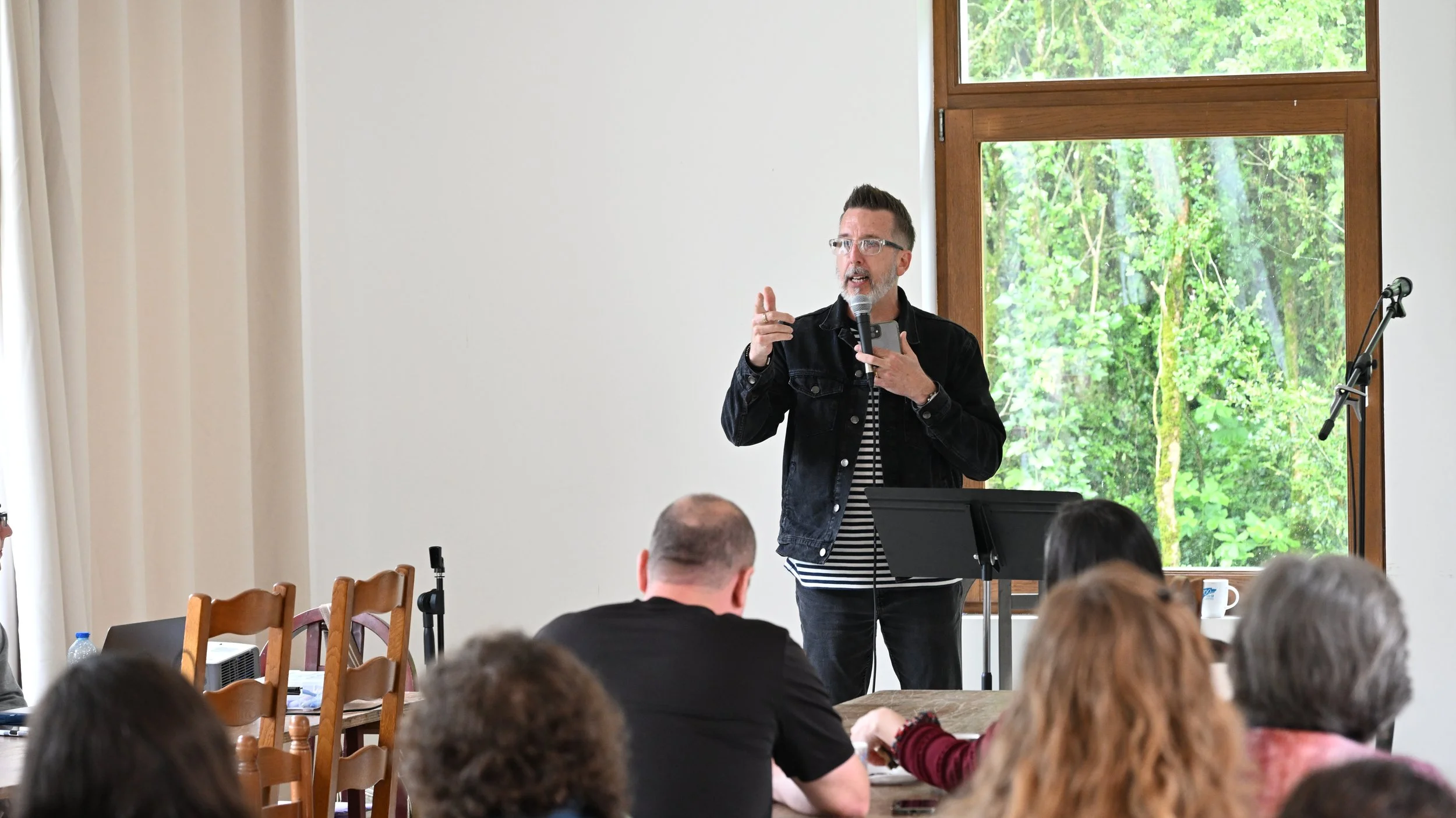This year I had the assignment of going to our friendly supermarket to order a turkey. This was in preparation to host all the field staff working with our mission in France for a big Thanksgiving meal. There is no frozen turkey section in the grocery stores here, so.turkeys must be ordered in advance for them to come whole - and they don’t come frozen. Usually they come wrapped loosely in plastic and placed in a cardboard box. This is probably just as good, because I remember once years ago when we were rookie turkey chefs and we we didn’t begin thawing the frozen turkey early enough. It eventually would come out of the oven nice and done, but not before our hands were raw, and would be for days afterward, due to our vigorous massaging of the turkey under water in order to get it to soft enough to cook.
My main goal this time in ordering the bird was to make sure it would yield enough meat to feed all our guests. Satisfied that I chosen well, I left the store last week with my pink copy of the order slip. Unfortunately, I never thought to check the price per kilogram, just glad that we would have a bird in time. So yesterday when I returned to pick up the turkey, the butcher put it on the scale and rang it up. I did a double take and about doubled over when I saw the price - 75 euros! That’s right folks. The privilege of asking for white, dark or drumstick this year is going to cost us about the price of a hotel room.
I remember another Thanksgiving where having a turkey on Thanksgiving was probably even more costly to someone. When we were living in Bangladesh, turkeys were not something available in stores. This particular year, a pastor was coming to visit and decided to bless us by bringing a turkey in his suitcase. He packed the bag with dry ice, put the turkey inside and hoped it would stay cold all the way through the 22 hour flight from the U.S. His hopes of sneaking the meat product through customs seemed to be dashed as he watched his suitcase come down the baggage claim belt and noticed a layer of frost had formed on the outside of his suitcase because of the dry ice. He imagined a scowling customs agent tipped off by his frosty suitcase, fining him for having commited a "fowl". He tried not to look suspicious as he exited the airport and fortunately, the turkey did not get confiscated and made it safely to the Thanksgiving table that year.
It’s amazing what lengths we will go to have the trappings we associate with giving thanks. But the reality is that I don’t need a turkey to be thankful. And there are many other things we might enjoy or think we need to adequately thank God. Polished worship bands, expensive presentation software, complex lighting systems, and even smoke machines in many churches help set the atmosphere for thanking God in worship. But the most costly thing in giving thanks is not the stuff we do it with. It’s always when we pay the price necessary for getting our hearts into an attitude of humble and sincere gratitude. That’s still the price God sees as a worthwhile investment.










